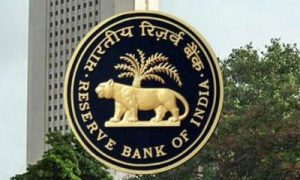The CIBIL Score works as a first impression for the lender, the higher the score, the better are your chances of the loan being reviewed and approved.
Taking a loan for accomplishing an important task is considered as a well-thought decision. However, do you know your credit history may create ‘problems’ for your future borrowings?
Financing your goal involves several procedures and documents and a healthy credit score is an addition to that, which not only facilitates the impression of a habit of the borrower, but creates a sense of discipline of paying timely instalments of your loans, if you have taken any.
Read More: LIC Dhan Varsha: Invest Rs 1597 PD for 10 years and get returns of up to Rs 93,49,500 at maturity
What Is CIBIL Score?
Credit Information Bureau (India) Ltd. (CIBIL) score is a 3-digit numeric summary of your credit history. It is derived by using details found in the ‘Accounts’ and ‘Enquiries’ sections of your CIBIL report.
The report is derived including (but not restricted to) your loan accounts or credit cards, and their payment status, as well as outstanding amounts’ days past due. With the help of PAN number, these details can be fetched.
The score reflects your credit worthiness, based on your borrowing and repayment history, as shared by lenders (like banks).
Your CIBIL score ranges from 300 to 900 and the higher your score, better are your chances of getting a loan approved. The closer your score is to 900, the better your credit rating is.
The Credit Information Bureau (India) Ltd. was incorporated in 2000 and launched its operations in April 2004.
Following enactment of the Credit Information Companies (Regulation) Act (CICRA) in 2005, three other Credit Information Companies (CICs) were also set up. They are Experian, Equifax and Highmark.
However, the most popular credit score in India is the CIBIL Score.
Why is CIBIL Score important?
Your CIBIL score is an important factor that lenders look at while evaluating a loan application.
The CIBIL Score works as a first impression for the lender, the higher the score, the better are your chances of the loan being reviewed and approved.
However, it must be noted that the decision to lend is solely dependent on the lender and CIBIL does not in any manner decide if the loan/credit card should be sanctioned or not.
How is the CIBIL Score calculated?
The most important elements of the score composition are centred around the loan payment behaviour of the individual.
History of your payments, your credit exposure, credit type and duration, primarily taken into consideration.
The CIBIL TransUnion Score is calculated based on the information in the ‘Accounts; and ‘Enquiry’ section of your CIBIL Report. The score is calculated based on the following factors:
Credit Utilisation: How much credit is being used by the borrower?
Defaulting: Have you not paid any instalments? How many accounts are past due and by how many days?
Trade Attributes: How old are this consumer’s lines of credit? What type of credit? Does the consumer have a good mix or balance of credit or is it all credit cards?
Factors that impact your CIBIL Score
Payment history: Making late payments or defaulting on EMIs have a negative impact on your score.
Multiple enquiries: Too many loan enquiries may have a negative impact on your score as it indicates that your loan burden may go up in the future.
High credit utilisation: A high credit utilisation limit indicates a rising debt burden over time and may negatively impact your score
How to improve your CIBIL score?
You can improve your score by adopting disciplines financial cycle; repay your credit card bills on time, don’t miss loan EMIs, never default on debts, use credit wisely.
Timely payments of loan EMIs is considered as one of the important habits that help in maintaining a fair credit history and a good credit score.
Monitor your CIBIL Score Report regularly. It will act as an alert of any possible inaccuracies. In case you spot any discrepancy/mismatch, you can report the same on the CIBIL website or request the lender to report the correction to CIBIL.





































